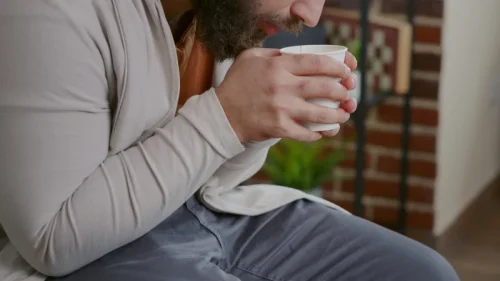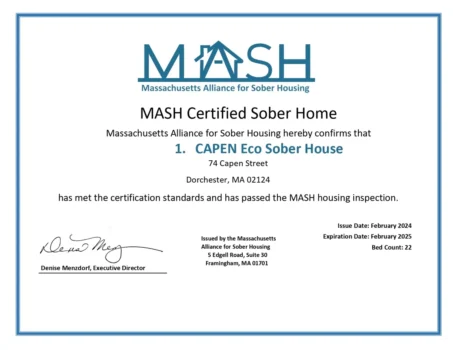
Brittany Burke Robert, the author of this article, has written about health for Oprah Daily, Well+Good, Livestrong, Reebok and other publications and digital brands for over 15 years. She has extensive experience working alongside clinicians and providers to create physical and mental well-being content that’s useful, informative, and clinically effective. For this article, she conducted interviews with multiple doctors for their expertise and recommendations and read research on alcohol and its effect on the body. In addition, the editor of this article has spent the last 15 years as a health editor, covering all things health, fitness, nutrition, and wellness and adheres to the highest journalistic standards. And, emotionally, alcohol can make you not only more anxious, but more irritable, more impulsive and less inhibited — not just after a drink, but compounded over time, says Dr. Mosquera.
Improved Cognition
Some people even have seizures or see things that aren’t there (hallucinations). Your doctor or substance abuse therapist can offer guidance and may prescribe medication like benzodiazepines or carbamazepine to help you get through it. You might think that a regular glass of red wine or other alcoholic beverages might be good for your heart. But that may not be true, or true only for light sippers (less than one drink a day). If you use more than that, cutting back or quitting may lower your blood pressure, levels of fat called triglycerides, and chances of heart failure.
Make time for self-care
Take a couple of Biocol labs’ Something For a Mini Hangover capsules (a clever concoction of choline, thistle and artichoke) prior to drinking to help break down the tequila-induced toxins in your body. You might realize that you look forward to weekend mornings now instead of dreading hangovers and hangxiety. Spending quality family time or pursuing our hobbies becomes much more fulfilling than alcohol use. Now you can check out the farmers’ market, go on a long walk, or make some progress on that DIY project. By now you might be feeling great in the mornings, have less alcohol-related anxiety, experience more mental clarity, and feel a deeper sense of appreciation for waking up without hangxiety or shame.
Support Groups
Alcohol can cause inflammation and damage to your liver when used heavily over prolonged periods. After stopping alcohol, inflammation what happens when you stop drinking alcohol in your liver caused by alcohol will subside. Most of this inflammation will be gone by your fourth week of abstinence.

Theories suggest that for certain people drinking has a different and stronger impact that can lead to alcohol use disorder. Many people with alcohol use disorder hesitate to get treatment because they don’t recognize that they have a problem. An intervention from loved ones can help some people recognize and accept that they need professional help. If you’re concerned about someone who drinks too much, ask a professional experienced in alcohol treatment for advice on how to approach that person. Experts say there are benefits to quitting alcohol for a short period, even if you’re a social or moderate drinker.


Just like Sober October, Dry Jan is an awareness campaign that spurs people to forgo alcohol for 31 days. Each week feels like a milestone, and this week might feel like your best one yet. You may feel a boost in your overall wellness and satisfaction with life. 21 days https://ecosoberhouse.com/ is a major accomplishment, and something to be really proud of. Alcohol cravings may continue to arise well into week 2 and beyond, and are likely to be strongest at a particular time each day. Try to schedule a rewarding activity for this “witching hour” timeframe.

What is the prognosis for someone with alcohol withdrawal?
- People who drink heavily are about twice as likely to have a cardiovascular event within 24 hours than people who do not drink at all.
- While you’re unlikely to notice, unless it is excessively high, your blood pressure will decrease.
- Like other symptoms, the impact on mood depends on the amount and duration of your alcohol use.
- Alcohol is also linked to poor sleep quality, so you might feel more energized after a week without alcohol, she added.
- In fact, alcohol use can make you more susceptible to pneumonia, for example, and predispose chronic drinkers to things like infections and even poor wound healing.
- Saving the money you would have spent on alcohol will provide you $300–$400 or more by this second week.
What matters most is your ability to maintain an open, curious outlook as you learn what does and doesn’t work for you. Satisfying hobbies can distract you from wanting to drink, but they also help you relax — something everyone needs to do. If you turn to alcohol to manage emotional distress, the added overwhelm can prompt the urge to drink, making success seem even more out of reach. Becoming more aware of your alcohol triggers and reasons for drinking can help you plan ways to help manage the urge to drink. From month-long sobriety challenges to the Sober Curious movement, more and more people are taking a closer look at the role alcohol plays in their lives. Cognitive functions—including problem solving, decision making and self-regulation skills—can also improve with continued sobriety, adds Dr. Kellogg.

In the United States, most states have low-cost or free rehabilitation programs for those who are uninsured. It can be helpful to write down your reasons for quitting and the difficulty of withdrawal while it is fresh in your mind. You might notice this effect more if you were drinking to manage your mood, such as drinking to temporarily relieve negative emotions or boost positive ones. This may be more pronounced if you often use alcohol as a way to manage existing sleep problems. Unfortunately, while alcohol may make it seem like you are falling asleep quicker, it can also lead to worse sleep quality. It is potentially life-threatening, so it is essential to seek medical attention immediately if you experience such symptoms.
Different Drinking Levels
Think of it as giving your liver a little boost in the right direction. “Nutrition therapy is very important in terms of feeding the liver and giving it the building blocks it needs to restore itself,” says Dr. Lindenmeyer. Another thing that will help your liver’s journey in recovery is good nutrition.
